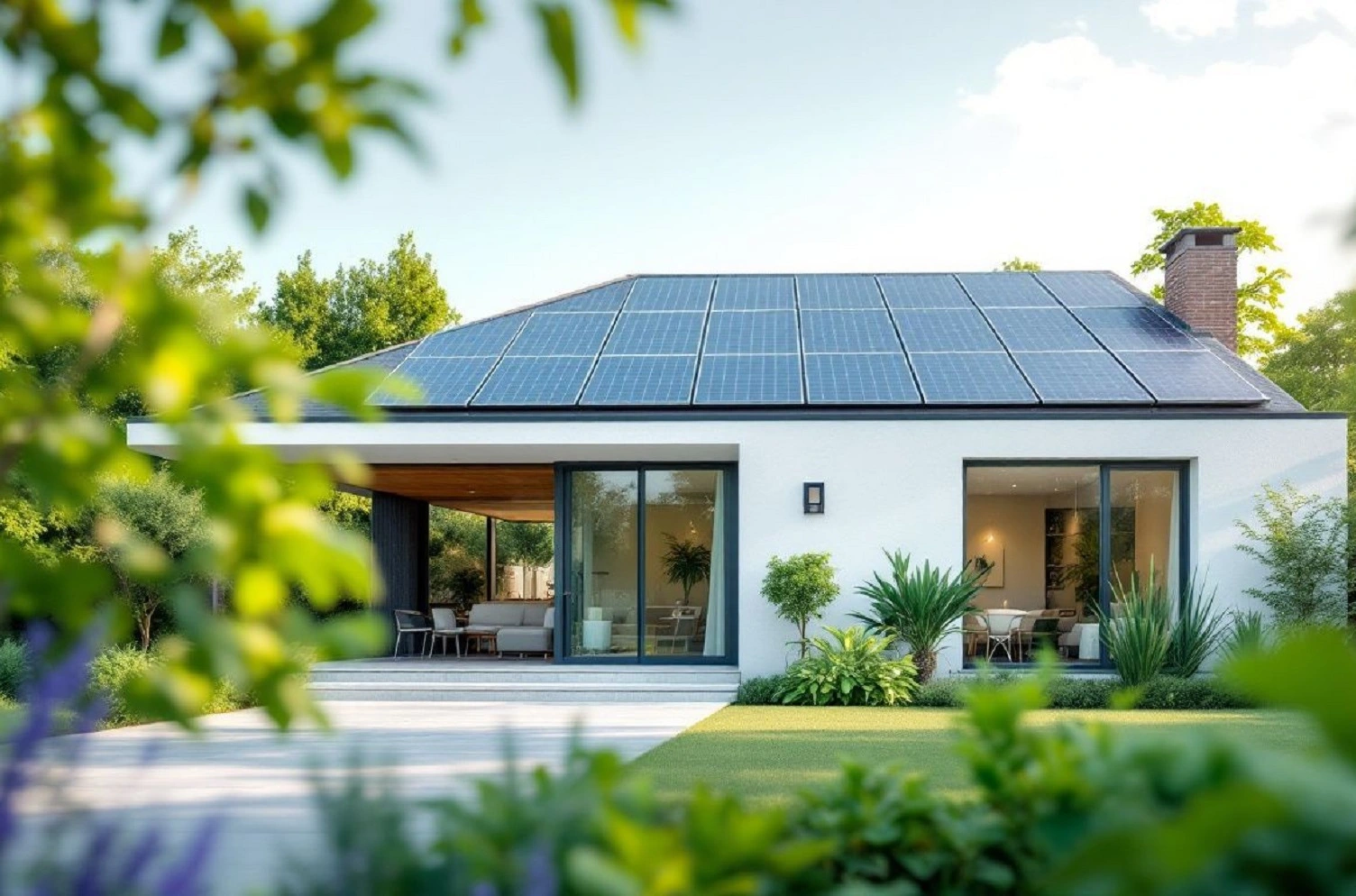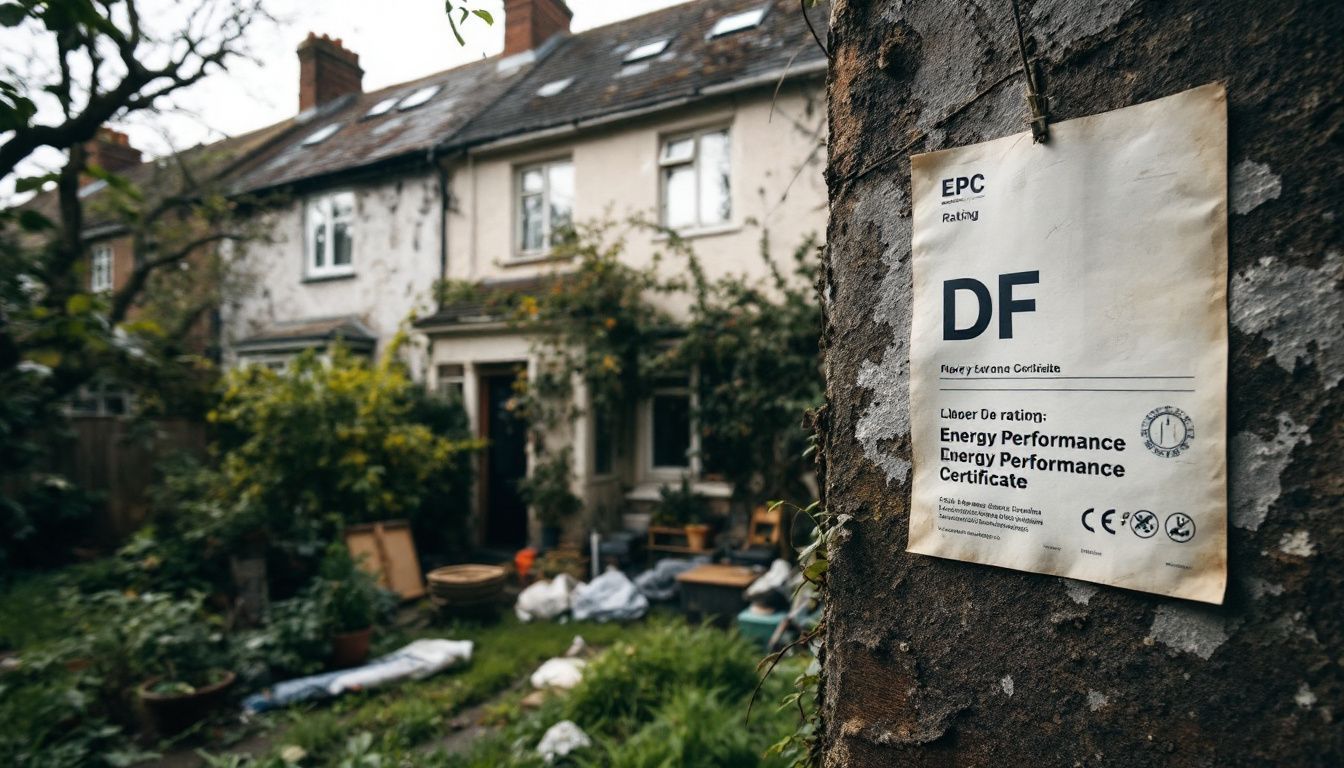Green Buy-to-Let Mortgages: Incentives For Energy-Efficient Properties

Many landlords need help with the costs of property maintenance. A notable fact is that green buy-to-let mortgages offer lower rates for homes with a high energy efficiency rating. Homes with an energy efficiency rating of 81 or above, or in energy efficiency bands A or B, can qualify for these lower mortgage rates. Additionally, green mortgages incentivize home energy efficiency by encouraging homeowners to enhance the energy efficiency of their properties.
What is a Green Mortgage?
A green mortgage is a type of mortgage that rewards homeowners for having an energy-efficient home. With the increasing focus on environmental sustainability, green mortgages have become popular for those looking to reduce their carbon footprint while saving money on their mortgage. In this article, we will explore green mortgages, how they work, and the benefits they offer.
Moreover, a property's energy efficiency is determined by its Energy Performance Certificate (EPC) rating, which ranges from A (most efficient) to G (least efficient). A property typically needs an EPC rating of A or B to qualify for a green mortgage.
Benefits of Investing in Energy-Efficient Properties
Investing in energy-efficient properties can significantly reduce your mortgage rates. Such buildings often have a higher market value and are more popular with renters.
Lower Mortgage Rates for Green Properties
Lenders offer lower mortgage rates for green properties. Energy-efficient homes tend to have lower default risks and may result in lower monthly repayments due to reduced running costs. Banks and building societies see these properties as better long-term investments.
As a result, they propose more attractive terms.
Green mortgages reward landlords who invest in eco-friendly features, such as solar panels or improved insulation. The aim is to encourage more property owners to make their buildings energy-efficient.
This push supports the broader goal of reducing carbon emissions across the housing sector.
Enhanced Property Value and Demand
Energy-efficient properties gain higher market values. Owners often find these homes sell at premium prices. This is because buyers want properties that promise lower energy bills and a smaller carbon footprint.
Energy-efficient features make a house more appealing, boosting its competitiveness in the property market.
Demand for green homes keeps growing among renters, too. They prefer living in places that are kind to the environment and their wallets. Property owners with high-energy performance certificates often experience shorter vacancy periods.
They attract tenants willing to pay more for such benefits, ensuring a steady income flow from green buy-to-let mortgages.

How Green Buy-to-Let Mortgages Work
Green Buy-to-Let mortgages are a type of mortgage that offers lower rates to customers who own or buy an energy-efficient property for rental purposes. These mortgages work similarly to standard Buy-to-Let mortgages but with the added benefit of a lower interest rate for energy-efficient properties. To qualify for a Green Buy-to-Let mortgage, the property must have a valid Energy Performance Certificate (EPC) with a rating of A or B.
Green Mortgages Eligibility and Requirements
Securing a green buy-to-let mortgage hinges on meeting specific criteria, notably the property’s energy efficiency. A predicted energy assessment is required for new-build properties that do not yet have an Energy Performance Certificate (EPC). Landlords must ensure their properties have an Energy Performance Certificate (EPC) rating of A or B to qualify.
Energy Performance Certificate (EPC) Standards
Energy Performance Certificates (EPCs) are crucial for green buy-to-let mortgages. Properties need to possess an 'A' or 'B' EPC rating to qualify for these loans. The objective is to ensure that only the most energy-efficient homes are eligible, encouraging landlords to enhance their properties with environmentally friendly features.
To obtain an EPC, assessors evaluate the property's performance on a scale of 'A' (maximum efficiency) to 'G' (minimum efficiency), considering factors such as insulation and heating systems.
If landlords want to benefit from green mortgages, they must modify their properties to meet the requisite standards. Even the simplest upgrades can substantially enhance a property's EPC rating.
For instance, the introduction of double-glazed windows or upgrading the boiler system can positively impact efficiency. High energy efficiency is beneficial to the environment and enhances the appeal of properties to potential tenants and buyers who prioritise sustainable living options.
Green Mortgage Providers and Products
Several banks and building societies offer green mortgages, including Barclays, Halifax, Lloyds, NatWest, Nationwide, and Virgin Money. These lenders offer a range of green mortgage products, including fixed-rate and variable-rate mortgages, with varying interest rates and terms. Some lenders also offer additional benefits, such as cashback or free energy assessments, for energy-efficient properties.

Improving Energy Efficiency in Rental Properties
As a landlord, improving the energy efficiency of your rental property can not only help reduce your tenants’ energy bills but also increase the value of your property. Some ways to improve energy efficiency in rental properties include:
- Installing loft insulation and draught-proofing
- Upgrading to energy-efficient boilers and radiators
- Fitting double or triple-glazed windows
- Installing solar panels or renewable energy systems
- Using energy-efficient lighting and appliances
By improving the energy efficiency of your rental property, you can not only reduce your tenants’ energy bills but also increase the value of your property and attract prospective buyers who are looking for energy-efficient homes.
How to Apply for a Green Buy-to-Let Mortgage
Check your property’s Energy Performance Certificate (EPC) rating first. This is crucial as it must meet specific criteria to qualify for a green buy-to-let mortgage. Lenders usually require a property with an EPC rating of A or B. Consulting a mortgage adviser can help you understand the necessary documentation and benefits of green mortgages.
Gather all necessary documents before approaching lenders, including proof of income and identification. Qualified mortgage professionals are available for consultations through a phone or video call to assist with specific mortgage guidance and general inquiries.

Research lenders who offer green mortgages and compare their terms and interest rates. Many banks now provide these eco-friendly options with attractive benefits for landlords looking to invest in energy-efficient properties.
Fill out the application form accurately, submit your documents, and await approval from the lender.
Conclusion
Green buy-to-let mortgages present landlords with a savvy investment pathway for the future. These loans incentivise measures taken to elevate property energy efficiency, subsequently causing savings and property value incrementation.
Being eligible necessitates landlords to fulfil certain criteria, such as possessing a prominent Energy Performance Certificate rating. The application process is undemanding, promoting a greater proliferation of environmentally friendly rental alternatives in the market.
This tactic aids the environment while simultaneously augmenting investor yields within a progressive housing market.
Related Posts
Ask the Expert
Mortgage Brokers


_7779.jpg)

